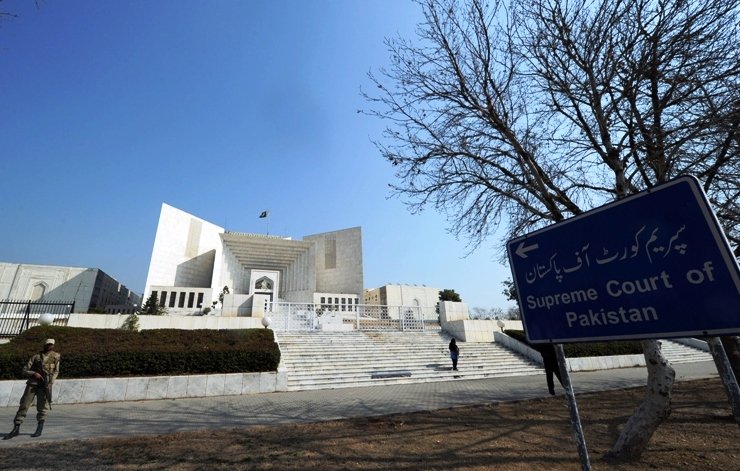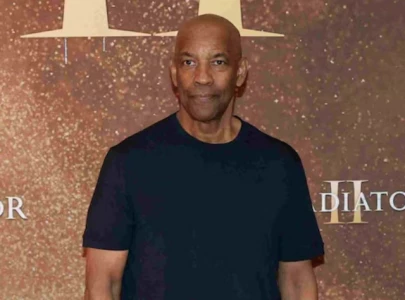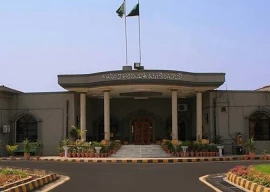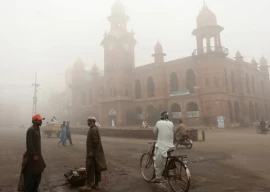
A three-member bench – headed by Justice Jawwad S Khawaja – was hearing a slew of petitions seeking trial of Musharraf for proclaiming emergency in the country on November 3, 2007.
“The attorney general shall submit further statement about the procedure and details of the actions envisioned by the federal government in light of the present case and the process through which such actions will be given affect. Further the statement shall be submitted before the next date of hearing that is June 27,” read a short order issued by the bench.
Earlier, Attorney General Munir A Malik informed the bench that the government, in line with both a decision of the apex court and a resolution of the Senate, was seeking trial of Musharraf under Article 6 of the Constitution.
However, Malik added that “given the primacy of the issue in the struggle for upholding the spirit of the Constitution, the government will proceed in accordance with law and also take political forces into confidence through a consultative process so that the collective will and wisdom of the people is duly reflected.”

He informed the bench that the government would require a 30-day period to prepare a detailed mechanism, including who would investigate, who will prosecute, and who will be named as abettors in the treason case.
Conversely, Justice Khawaja observed that a one month period could not be granted by the court because the government had in principle decided to proceed against those who had violated the Constitution. He said the mechanism should only seek to clarify how the process would be initiated and concluded.
The bench questioned the need for a consultative process. If the government feels an unconstitutional act has been committed, there is no need for political consultations, observed Justice Ejaz Afzal Khan, who was also on the bench.
The third judge on the bench, Justice Khilji Arif Hussain, observed that the response of the interim government had been far better than that of the elected government. While the interim government had clearly stated that it was not their mandate to proceed against Musharraf, the elected government was hesitating in initiating proceedings, he observed.
Highlighting the near impossibility of reaching a political consensus on the issue, one of the petitioners, Engineer Qamarul Islam, said the AG’s stance of holding consultation was complete eyewash.
He informed the court that his petition contained the names of abettors and that it would not be difficult to ascertain the list of those who apparently supported Musharraf in his November 2007 actions.
Siding with caution, the bench, however, declined a request from the petitioner to take the former military ruler into custody, saying that the time was not right for such a decision.
A counsel for Musharraf said that the case has assumed national significance due to the involvement of international figures.
When Prime Minister Nawaz Sharif and his family were facing criminal cases in 2000, international personalities had convinced Musharraf to let the Sharifs live in exile, he said, requesting anonymity. The same people would now play their role to ensure Musharraf’s safe exit, he added.
Published in The Express Tribune, June 25th, 2013.
COMMENTS (4)
Comments are moderated and generally will be posted if they are on-topic and not abusive.
For more information, please see our Comments FAQ

1732090022-0/Elmo-and-Amelia-(1)1732090022-0-165x106.webp)
1725523665-0/Minecraft-Movie-(1)1725523665-0-165x106.webp)

1732089759-0/BeFunky-collage-(75)1732089759-0-165x106.webp)



1732094891-0/Copy-of-Untitled-(52)1732094891-0-270x192.webp)

1732090878-3/Untitled-design-(22)1732090878-3-270x192.webp)






The PCO judges must be summoned to the Supreme Court also who took oath on PCO and endorsed this Musharraf's act rightful and all the officials of that time who supported Musharraf not only single Musharraf if the Supreme Court wants to complete and fulfill the justice's and equality's requirements according to the constitution other wise this shall be considered single-sided prosecution against Musharraf by the Supreme Court and target of revenge by Nawaz Sharif......
The day court starts its self accountability I will believe in the fairness of the court. It has yet to proceed against Judges & their families involved in cases
Democracy is by the parliament and collective will of the people. The Parliament will not and shall not be bullied by SC for not reaching a consensus. If the Parliament does not agree that Musharraf should be punished, its the collective will of the people. It's not the SC's ambit to decide to overstep that process and just go about punishing someone. Everyone needs to put in their stakes. This case is of utmost significance, and a heavy mandate is necessary to proceed. This will shut future endeavors and miscalculations and put an end to all this drama once and far all.
And TBH, when it comes to collective will, NO ONE will want to punish Musharraf. The international stakes are too high :)
The day Musharraf is held accountable for a blatant coup to forcibly remove a elected prime-minister and sentenced, I will believe in naya-pakistan.